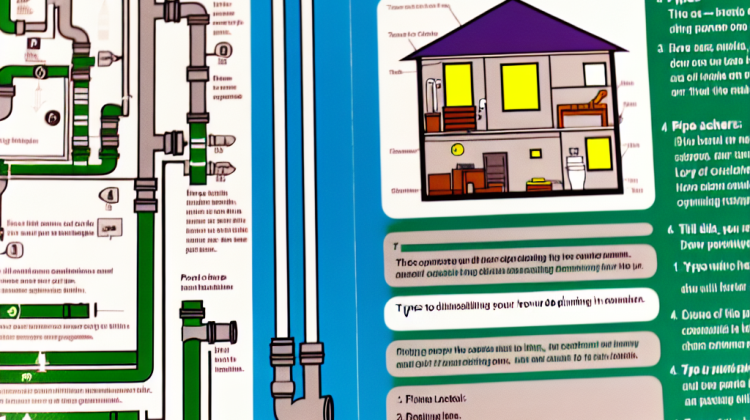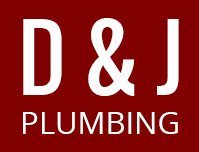
Did you know that plumbing is one of the oldest trades in the world? It dates back to ancient Egypt, where they created complex systems to supply water and drain waste. Fast forward to today, and plumbing has become essential in our modern lives, especially when it comes to building houses. In Seattle, just like in many other cities, there are specific rules and regulations that guide how plumbing must be done in homes. These codes are super important for keeping everyone safe and ensuring that water flows as it should.
Seattle’s plumbing codes have evolved quite a bit over the years. In the early days, things were pretty basic. Houses didn’t have indoor plumbing like we do now. Imagine going outside to use a bathroom! But as the city grew and technology advanced, so did the rules. Today, Seattle has a comprehensive set of guidelines to improve both safety and efficiency. These codes help prevent plumbing disasters while protecting the environment. If a homeowner doesn’t follow these rules, they could face some hefty fines or even have to redo their work, which can be a real headache.
One interesting fact is that, according to Seattle’s building department, almost 90% of plumbing failures can be traced back to poor installation or lack of permits. Yikes! That’s a big deal! This statistic shows just how crucial it is for homeowners and contractors to understand plumbing codes. Not just any Joe Schmoe can pick up a wrench and start installing pipes. It takes know-how, training, and a good grasp of the local laws.
So, how does someone know what to do? Well, first off, they need to figure out which permits they require. Seattle has a smooth online system where you can check what you need. Once you know that, it’s time to gather supplies. From pipes to fittings to fixtures, every little piece has to meet specific standards. If they don’t, it could really cramp your style when it comes time for inspections.
Speaking of inspections, getting the plumbing checked is a must. The city schedules these inspections to ensure everything is up to snuff. It’s like getting a thumbs-up for your work! And let me tell ya, nobody wants to fail an inspection. If you don’t pass, you might have to tear stuff apart to fix it. That can cost a pretty penny!
Another common topic in Seattle plumbing codes is the need for backflow prevention. This little gadget stops dirty water from creeping back into your clean supply. It’s kinda like having a superhero for your plumbing system! If a plumber isn’t aware of backflow requirements, it could lead to some big problems later on.
Lastly, let’s not forget about water conservation. Seattle is big on keeping its environment safe. The codes include lots of tips on how to use less water. You might find that many rules encourage installing low-flow toilets or smart irrigation systems to save water. Not only is this good for Mother Earth, but it can also save homeowners money on their water bills, so it’s a win-win situation.
How to Plumbing in House Code Seattle
Getting into plumbing in Seattle is a piece of cake if you know the rules. The city has specific codes to make sure everything runs smoothly and safely. Let’s dive into what you need to know to keep things up to code!
Understanding the Basics
First off, it’s super important to understand what plumbing codes are. Think of them like the rules in a game: they keep things safe and fair. In Seattle, the plumbing codes help protect people from water damage and make sure everyone has good drinking water.
The Seattle Plumbing Code
Seattle follows the Washington State Plumbing Code along with some local rules. That means you need to check both sets of codes when you’re doing a plumbing job. It’s like cleaning your room; you can’t just shove everything under the bed. You’ve got to follow the steps to keep it tidy!
Permits and Inspections
Before you start any plumbing work, you’re gonna need a permit. Think of a permit like a hall pass in school; it allows you to do certain things legally. You can get a permit through the Seattle Department of Construction and Inspections. If you skip this step, you might run into some serious trouble!
Common Plumbing Requirements
Here are some key points you’ll want to keep in mind:
- All pipes must be properly installed and supported.
- Materials used should meet the code standards.
- Water heaters need to be vented properly to avoid harmful gases.
- Bathroom fixtures like sinks and toilets must be sealed to prevent leaks.
Choosing the Right Materials
When it comes to materials, stick with what’s approved. In Seattle, copper, CPVC, and PEX are popular choices. They’re like the A-team of plumbing materials. You wouldn’t use a flimsy straw to drink milkshake, right? Always use high-quality stuff!
Connecting to Municipal Systems
Seattle has its own water supply system, so when you’re connecting to it, follow the local codes. Make sure to connect to the city’s sewer system correctly to avoid any messy backup situations. It’s like making sure everyone is using the same Wi-Fi; it just works better that way!
Safety First!
Safety is a big deal in plumbing. Always turn off the water supply before starting any project. Use safety gear like gloves and goggles. You don’t want to end up in a slippery situation!
Get Help if You Need It
If all this seems overwhelming, it’s alright to ask for help! Sometimes, hiring a licensed plumber makes sense. Remember, it’s okay to reach out for a lifeline, especially if you want everything done right. After all, the last thing you want is a leaky problem!
Staying Updated
Plumbing codes can change over time, so it’s important to stay updated. The Internet is full of resources, plus the Seattle Department of Construction and Inspections has all you need to know. Remember, knowledge is power!
Oh, and just so you know, approximately 60% of Seattle homeowners prefer to hire professionals for plumbing issues. It’s a smart move if you’re not sure where to start!
“`html
How to Plumbing in House Code Seattle FAQ
What is plumbing in house code Seattle?
Plumbing in house code Seattle means following specific rules when installing or fixing pipes, toilets, sinks, and more in your home. These rules help keep everything safe and working right!
Why do I need to follow these codes?
Following plumbing codes helps prevent leaks, keeps your home safe, and makes sure everything is up to date. It makes your plumbing work better for you and protects your home from damage!
Do I need a permit for plumbing work?
Yes, you usually need a permit for any big plumbing job, like moving pipes or installing new fixtures. It’s important to check with the city to know what’s needed!
What are some common plumbing codes I should know?
- Pipes must be the right size for water flow.
- Water heaters need proper ventilation.
- All fixtures must be connected to a drainage system.
Can I do plumbing work myself?
You can do small jobs, like changing a faucet, but bigger tasks should be handled by a professional. It’s safer that way and helps avoid costly mistakes!
What happens if I don’t follow the codes?
If you don’t follow the plumbing codes, you might get fined. Your work could also fail inspection or lead to bigger problems down the line.
How do I find a good plumber in Seattle?
Ask friends or family for recommendations. You can also check online reviews to find a trustworthy plumber. Make sure they are licensed to work in Seattle!
What should I do if I have a plumbing emergency?
Stay calm! If there’s a serious leak or blockage, turn off your water supply and call a plumber right away. They’ll help you out quickly!
How often should I check my plumbing?
You should check your plumbing at least once a year. Look for leaks or strange noises. Catching problems early can save you a lot of money!
Where can I find plumbing resources and information?
- The City of Seattle’s official website has helpful plumbing guidelines.
- Local hardware stores often offer free workshops.
- Online handyman sites can provide expert advice and tips.
“`
Conclusion
So, when it comes to plumbing in Seattle, it’s super important to know the local codes. First off, make sure you get the right permits before starting any project. This isn’t just a formality; it keeps everything safe and up to snuff. You’ll want to use the right materials too, like certain pipes which are better for the Seattle weather. Don’t forget about keeping your plumbing system easy to maintain. That means having cleanouts and making sure things aren’t too cramped.
Also, it’s a good idea to check in with a professional if you’re not sure about any of the rules. They can help you get things done right, so you don’t end up in a pickle later. And hey, if you’re planning something big, consider looking into eco-friendly options! Seattle loves it when you think green. Keeping these points in mind will help ensure your plumbing is all set and compliant with the code. With the right info, you’ll be on your way to having a healthy, functioning plumbing system in no time!
